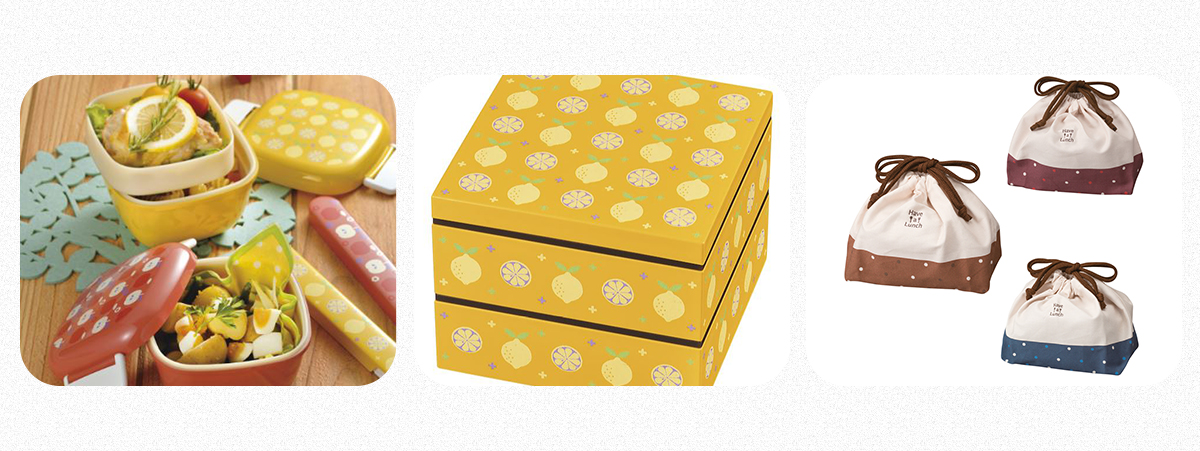
In Japan, about 40 percent of people make a bento at least once a month.
Among them, 25 percent
of them are made for kids and 75 percent for adults. Of the 75 percent, 30 percent are bento made by
wives for their husbands. With about 5 billion bento made annually in Japan, they are essential for
lunch in Japan.
History of Bento
Bento has a long history in Japan. The first bento was made in the 5th century when preserved food and rice balls from home were taken by farmers, hunters, and warriors to their workplace.

The bento culture began in earnest in the 16th century when Japan's shogun provided meals to his
many warriors in his castle.
It was named "bento" since it was a simple meal given to each
person. Later, the upper classes also enjoyed bento.
During the Edo Period (1603–1868), the masses began to take bento lunches with them on outdoor
excursions or to theater plays.
The bento eaten during the intermission of a theater play came
to be called "Makunouchi bento."
Diverse Makunouchi bento came to be made. Many Makunouchi bento
are now sold by convenience stores and local bento shops as the standard box lunch.


In the Meiji Period (1868–1912), the "ekiben" box lunch began to be sold at train stations.
Even today, original ekiben is sold at train stations. Ekiben is getting more popular now with
bento
contests held nationwide.


Today, many elementary and junior high schools provide school lunches while many high schools
have students bring their own bento for lunch.
Also, bento is essential for elementary and
junior high school excursions and sports meets.
For kindergarteners, mothers now make bento lunches featuring cute cartoon characters so their
children will eat more vegetables.
These "character bento" are colorful and designed to look
like cute characters. It has attracted much attention in Japan and overseas.
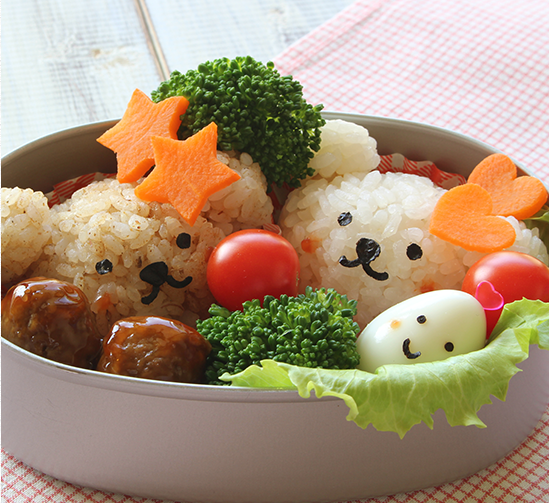
Choosing a bento box
It is important to choose a bento box that matches the person who will eat the bento. We must think about the bento box's material, function, size, etc.
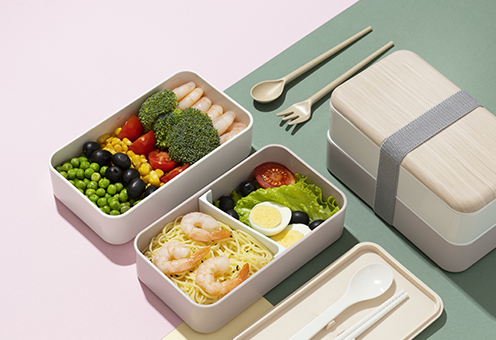
Plastic
Plastic is the most common material for bento boxes.
They come in many shapes and designs and can be heated in a microwave oven. Works well
to prevent any leakage.

Stainless steel
Lightweight and highly durable for long-term use.
Resistant to odors and staining.
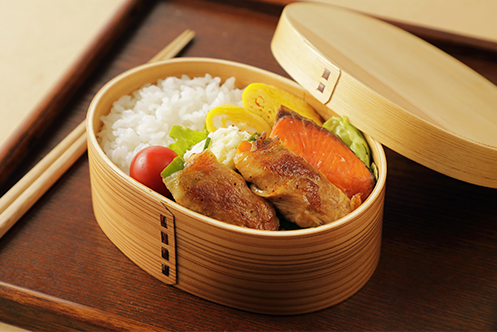
Wood
Wood makes the box look warm.
It keeps the moisture inside the lunch box, so the rice remains full and delicious.

Aluminum
Light and durable.
Also, since bacteria does not easily spread, the food spoils less easily.
Bento box functions
-

Single and
two-layer bento boxes
The single-layer bento box is easy to carry and put on your lap when you eat outdoors. The two-layer bento box can separate the rice, sandwiches, and side dishes.
-
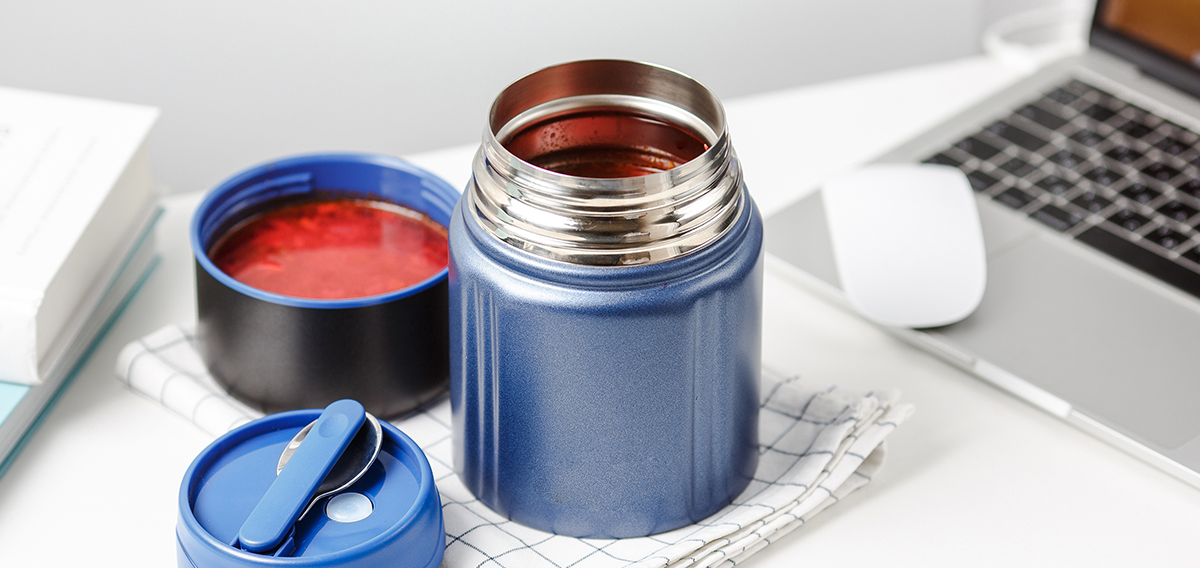
Heat insulation
Keeps the food warm longer. Convenient when you are outdoors and cannot reheat the bento in a microwave oven.
-

Boxes for sandwiches
and rice balls
Bento box shaped so that sandwiches and rice balls keep their shape.
-
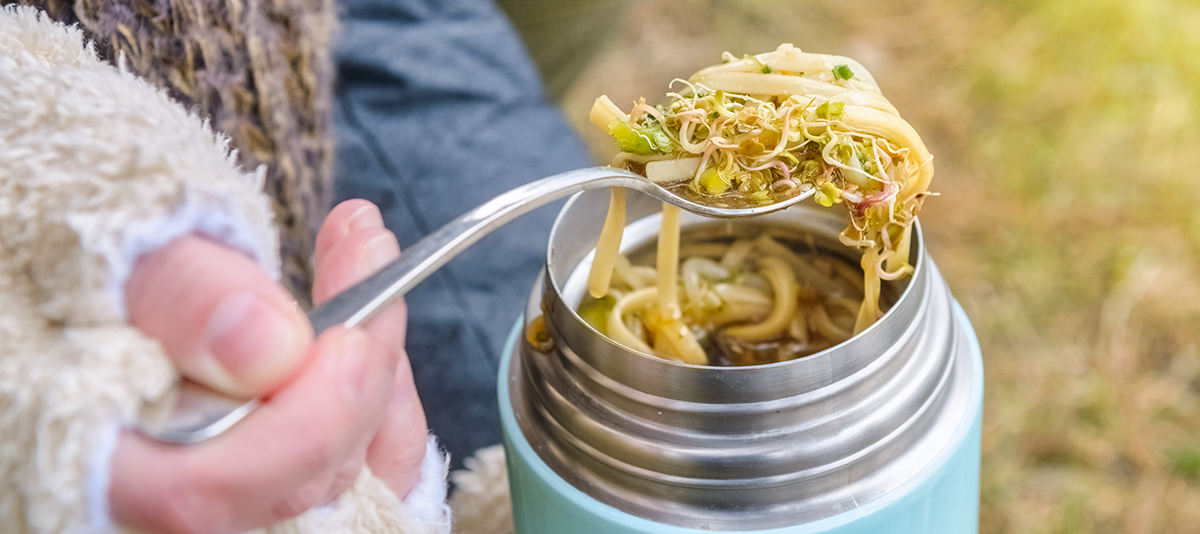
Soup jar
When you do not have time to make a bento in the morning, just put in the food ingredients to be cooked.
Bento box size
The bento box size should match the person's energy needs and activities for the day. It will depend on the person's physical size and physical activities (sports, physical labor, etc.).
Age 3–5: 400 ml
Age 6–11: 500-600 ml
Age 12 and older: 900 ml for boys, 600 ml to 700 ml for girls

Bento merchandise
For people who want to make cute bento food, but do not have the time or skill, there are convenient bento-making tools.
Easy to make bento
-

Rice ball tool
We usually squeeze rice firmly with both bands to make rice ball. You also can use the tools to makes it easy to make rice balls.
The rice ball tools / case on Alibaba.com -

Food cutters
Food cutters can cut out various shapes such as crabs, stars, and popular characters out of sausages, boiled eggs, carrots, etc.
-
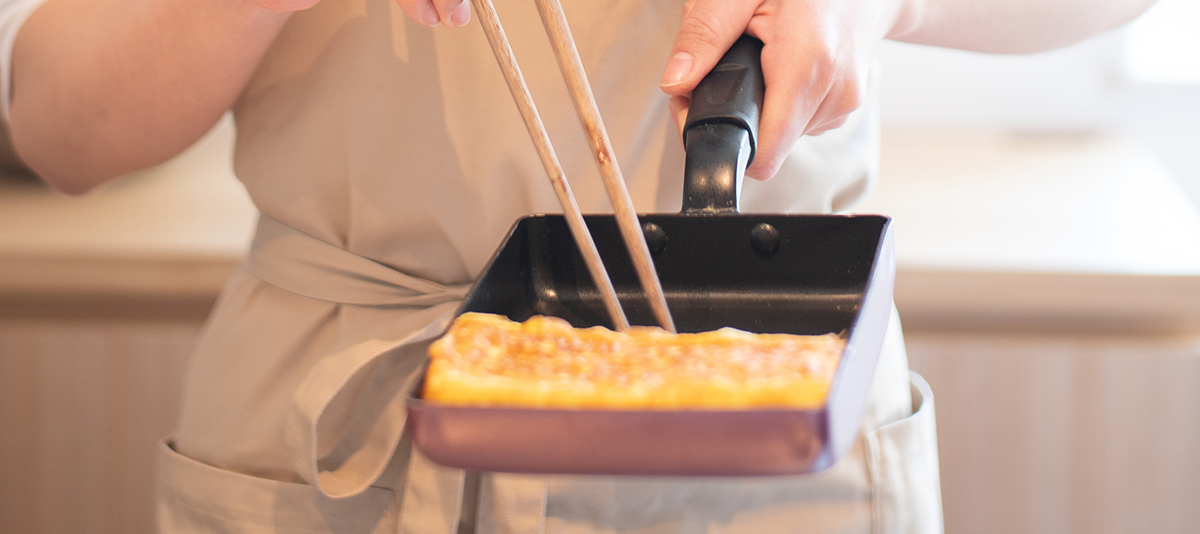
Rolled fried egg maker
Rolled fried egg (tamago-yaki) is a common bento food in Japan. It can be made with a dedicated frying pan or kit for use in microwave ovens.
Decorations for your bento

Fluted cups
For side dishes, fluted cups with beautiful colors or popular characters brighten up the bento. The cups also keep the side dishes separate, so they do not get mishmashed.
Plastic dividers
Plastic dividers are used to keep different foods separate so they do not mix together to affect the taste. They are usually shaped like green grass, but there are also diverse designs such as popular characters, trains, and cars popular among children.
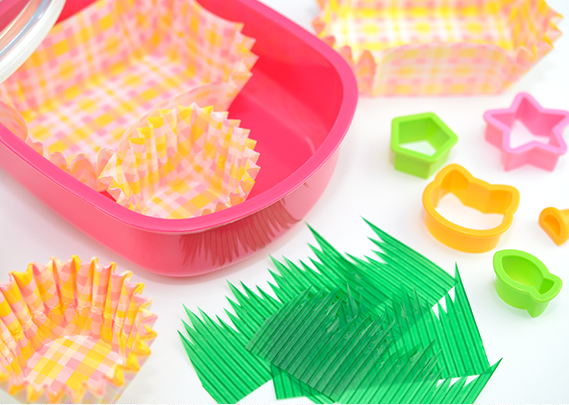

Decorative toothpicks
Toothpicks attached with animal or popular character decorations will quickly brighten up the bento. Just insert the toothpick into a sausage or meatball and voilà!
Japanese bento overseas
Since about 10 years ago, Japanese bento has even become popular internationally.
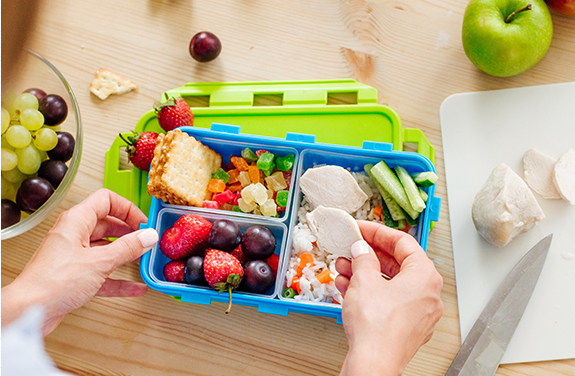
In 2008, a French person studying in Japan started a website to sell Japanese bento boxes to French people.
In 2009, colorful photos of bento were published in The Globe and Mail newspaper in Canada and in The New York Times in the United States.
In the news articles, Japanese words were used. "Bento" was described as "lunch box" and "onigiri" as "rice ball." How did bento become so popular overseas?
- It makes children eat things they usually don't like such as vegetables.
- It's fun to make.
- Safe even if you have allergies.
- Good nutritional balance.
- Cheaper than buying a bento.
Companies featured in Alibaba.com
THE SKATER CO., LTD.
We were among the first in the industry to outsource production, tapping into consumer needs to reach beyond conventional materials in designing our products. As a food-related manufacturer, The SKATER Co., Ltd. remains committed to the principles of reliability and security as well as key concepts of quality, functional capability, design, trend, price, environment, health, comfort and time reduction in product development.

TAKAGI INDUSTRIAL CO., LTD.
We have been in pursuit of clients' happy and satisfaction by manufacturering good plastic food container .Our targets are Sushi Restaurants,Grocery shops,Catering companies and hotels....We are hoping to have people feel happy with our products.
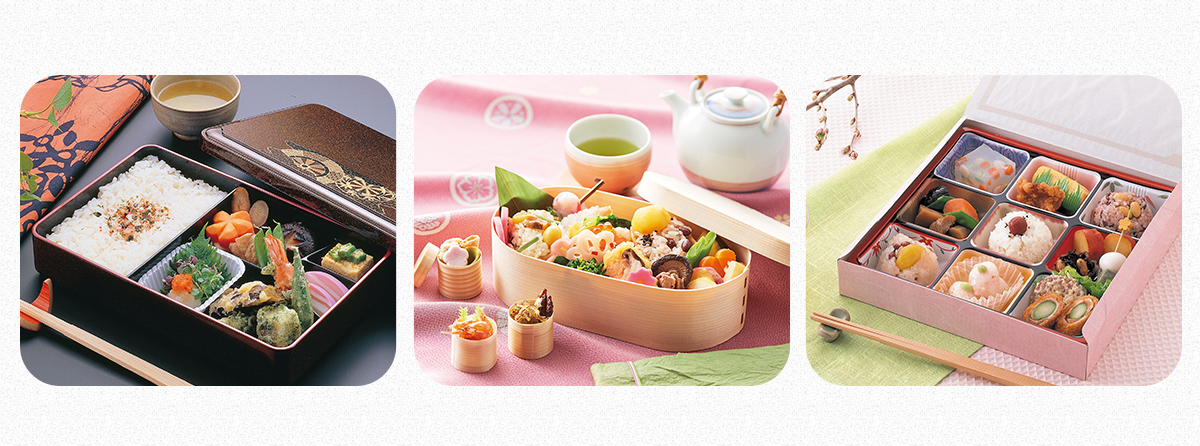
OEX.CO.,LTD.
OEX.Co., Ltd. is the company 'proposing the lifestyle scene of tomorrow', and plans a wide-range of products, ranging from high-class artistic pottery to everyday dishes.

PREAPP CO., LTD.
Our Mission " Make it Borderless. " Why Us? Experienced staff will introduce and provide safe and high-quality products from Japan with confidence! We have more than 90,000 products! You will have a variety of options to choose from, with just one stop at PREAPP! We are open to great ideas, and flexible enough to look for the products you desire!
